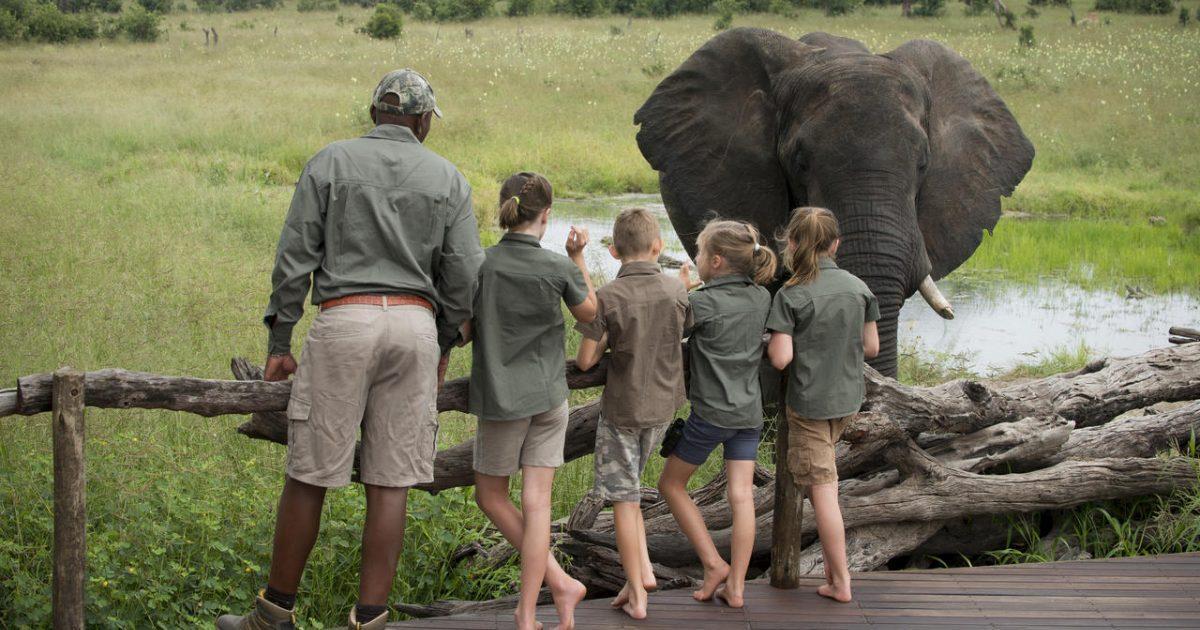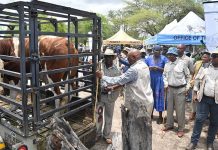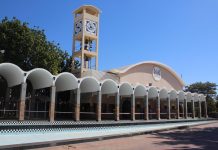Africa-Press – Botswana. Despite the high incidence of human-wildlife conflict, some farmers in the Ngamiland region continue to farm due to their dependence on agriculture for subsistence and livelihood.
Even with the risk of crop loss due to elephants raiding their farms, framing still remains a vital source of food and income for many. One such farmer is a 68-year-old, Mr Bakae Maphare of Shorobe in the eastern side of Maun.
He is a passionate farmer who cultivates his land every year and is lucky to be alive after he survived an attack by an enraged elephant at his ploughing field at Mochaba.
He ploughs a variety of crops ranging from maize, millet, watermelon and beans and he always has a bumper harvest because he ploughs early than others.
“Farming is close to my heart and normally I plough before the rainy season starts with a view to prevent giant animals from damaging my crops because they intrude into our homesteads and fields around May, June and July,” said Mr Maphare in an interview.
Some farmers have abandoned their ploughing fields due to the high risk of crop loss and the feeling that the government has turned a blind ear to their plight but for Mr Maphare, even with crops raiding, farming is still a viable option because he is of the view that something could be done to mitigate the human-wildlife conflict.
He said despite facing frequent crops raiding by elephants, he persisted in farming because he views it as the primary source of food and income.
He said farming is profitable if one does it right and perseveres. However, the year 2024 brought distress and grief to the elderly subsistence farmer following an attack by an aggressive elephant, which badly injured him.
Narrating his horrifying ordeal, Mr Maphare recalled that it was on a quiet drizzling evening last year May when his children spotted a troupe of elephants raiding crops and alerted him.
He took a rifle and hurried to the field to scare them and upon arrival shot in the air twice and the giant animals got irritated and moved some metres away from the centre of the field.
A few minutes later, one of the elephants aggressively turned around and ran towards him raising its trunk and fully extended its ears ready to attack. Suddenly, he said he saw myself lying in a pool of blood under the huge animal, which kept on trampling and shattering his chest and right arm with its tusk.
Mr Maphare revealed that he was fortunate to be alive as there was a certain man whom he borrowed a hectare of land in his field and by the time of the incident, he was harvesting watermelons. “I was in an intolerable pain, that elephant almost killed me because I could not move my body.
“I am lucky I survived the attack and I thank that man for saving my life as he continued clapping hands until the other elephants left the field and to my astonishment, the one attacking me also followed them. He reported the matter to the police who rushed me to Letsholathebe hospital and I was immediately referred to Nyangagwe Referral Hospital where I was hospitalised for a month,” he added, calling on the government to speedily review the compensation policy and include compensation for people injured by wild animals.
Mr Maphare argued with sadness that all his labour was in vain since elephants raided crops, which were already ripe.
Efforts to approach the Department of Wildlife and National Parks were also in vain as he was informed that the government only provides ex-gratia payment of P70 000 to families of those killed by wildlife.
“It saddens most to watch elephants destroying your produce after months of hard work. I take farming seriously because it is my source of income,” he said, noting that once he is fully recovered, he would trace his roots.
While he appreciates that conflict will always exist, he pins hopes on the new administration that they would come up with better strategies to mitigate human-wildlife conflict in a bid to enhance food security.
He said the Ngamiland region is home to vast herds of elephants, buffaloes, lions, hippos and leopards, which terrorise residents and emphasised that the government should protect farmers while also promoting conservation.
For More News And Analysis About Botswana Follow Africa-Press






